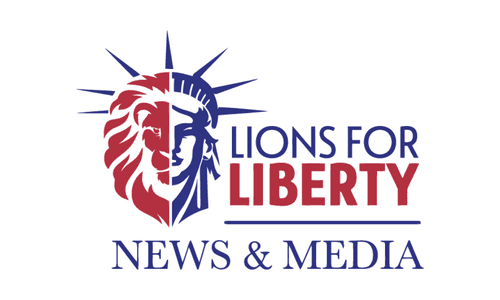On August 5, 2024, I filed four Right to Know Requests:
- Please provide an electronic copy of the images of all mail-in ballots (including absentee ballots) from the November 2023 Election between the dates of August 1, 2023 to December 31, 2023.
- Please provide an electronic copy of the images of all mail-in ballots (including absentee ballots) from the November 2022 Election between the dates of August 1, 2022 to December 31, 2022.
- Please provide an electronic copy of the images of all mail-in ballots (including absentee ballots) from the November 2021 Election between the dates of August 1, 2021 to December 31, 2021.
- Please provide an electronic copy of the images of all mail-in ballots (including absentee ballots) from the November 2020 Election between the dates of August 1, 2020 to December 31, 2020.
On September 11, 2024, these Public Records Requests, Reference # R000338-080324, # R000339-080324, # R000340-080324, # R000341-080324, were denied “pursuant to Section 308 of the Election Code, 25 P.S. § 2648 which exempts “the contents of ballot boxes and voting machines” from public inspection.” They did not call for the contents of ballot boxes and voting machines. I requested the electronic copy of the images of all mail-in ballots (including absentee ballots) for the 2020, 2021, 2022, and 2023 November Elections. As a result, Section 308 of the Election Code, 25 P.S. § 2648 did not apply.
However, 25 P.S. § 2648, Section 1307-D(a), states “All official mail-in ballots, files, applications for ballots and envelopes on which the executed declarations appear and all information and lists are designated and declared to be public records and shall be safely kept for a period of two years, except that no proof of identification shall be made public, nor shall information concerning a military elector be made public which is expressly forbidden by the Department of Defense because of military security.” Therefore, the images of all mail-in ballots are public records.
Furthermore, 25 P.S. § 3150.17(a), Section 1309(a), states “All official absentee ballots, files, applications for such ballots and envelopes on which the executed declarations appear, and all information and lists are hereby designated and declared to be public records and shall be safely kept for a period of two years, except that no proof of identification shall be made public, nor shall information concerning a military elector be made public which is expressly forbidden by the Department of Defense because of military security.” Hence, the images of all absentee ballots are also public records. Therefore, I appealed to the Office of Open Records on September 23, 2024.
On October 2, 2024, Chester County submitted a position statement, arguing that because the records requested are not accessible under the RTKL, the OOR does not have jurisdiction to hear this matter. In addition, Chester County maintained that public access to the records is barred by Section 2648 of the Election Code, 25 P.S. § 2648. Chester County further argued that providing access to the responsive records would “violate secrecy in voting as protected by the Pennsylvania Constitution.” Lastly, the County noted that responding to the Requests would be “overly burdensome.”
On November 19, 2024, the Office of Open Records responded to Chester County’s position statement with four points in their Legal Analysis. See Final Determination for an in-depth explanation.
- The OOR has jurisdiction over this appeal.
- The requested mail-in and absentee ballots are not exempt from public access under the Election Code.
- Disclosure of the requested records would not violate secrecy in voting.
- The County may provide the responsive records on a rolling production schedule.
On December 16, 2024, Chester County filed a Petition for Review appealing the Office of Open Records Final Determination. The case was assigned to Judge Anthony T. Verwey. Both parties submitted briefs. I was represented by Thomas E. Breth of Dillon McCandless King Coulter & Graham, LLP and Special Counsel to the Thomas More Society.
On March 6, 2025, Judge Anthony T. Verwey “ordered that the Final Determination of the Pennsylvania Office of Open Records at Docket No. AP 2024-2456 is affirmed, and the County is required to provide access to any responsive mail-in and absentee ballots in a manner consistent with the disclosure conditions set forth in the Election Code on a weekly basis continuing over a total period of ninety days.”
In simple terms, my argument with Chester County appears to boil down to ballot secrecy versus transparency in our elections. The reason for the secret ballot was to protect the voter against coercion, blackmail, or the ability to sell one’s vote. However, once a ballot is cast, the connection to the voter no longer exists. There is no personally identifiable information on the ballot. There is no name, address, or voter ID. The only way that someone else finds out how one voted would be if the voter voluntarily divulged that information.
Transparency helps to assure citizens that elections are free, fair, and honest. Transparency in our elections instills confidence in the electorate that the results are accurate. Transparency means more government accountability. When our legislature passes election laws, it is with the understanding that a county will abide by those laws. Counties as well as individuals do not get to pick and choose which laws they will follow and which laws they will not follow. Adhering to the rule of law helps to preserve and ensure the rights of all citizens.
Appreciate what you’re reading? Be sure to share it!
Have a story? Break it at LibertyLens.News! Become a Contributor.
Support platforms, like The Liberty Lens, that enable independent grassroots journalism. Donate here.
Discover more from The Liberty Lens
Subscribe to get the latest posts sent to your email.




